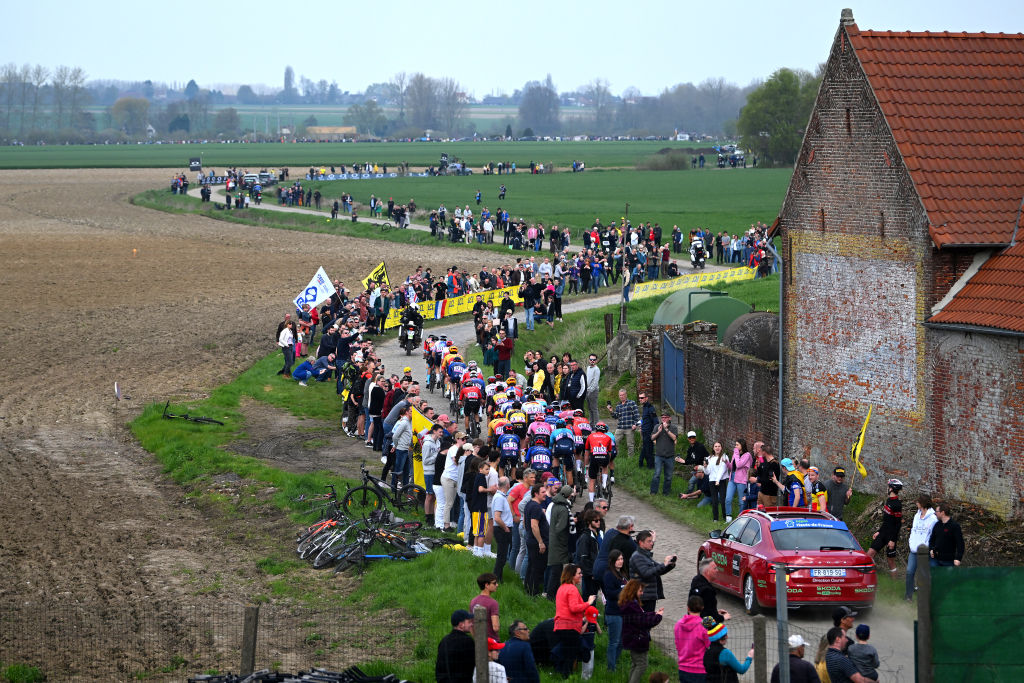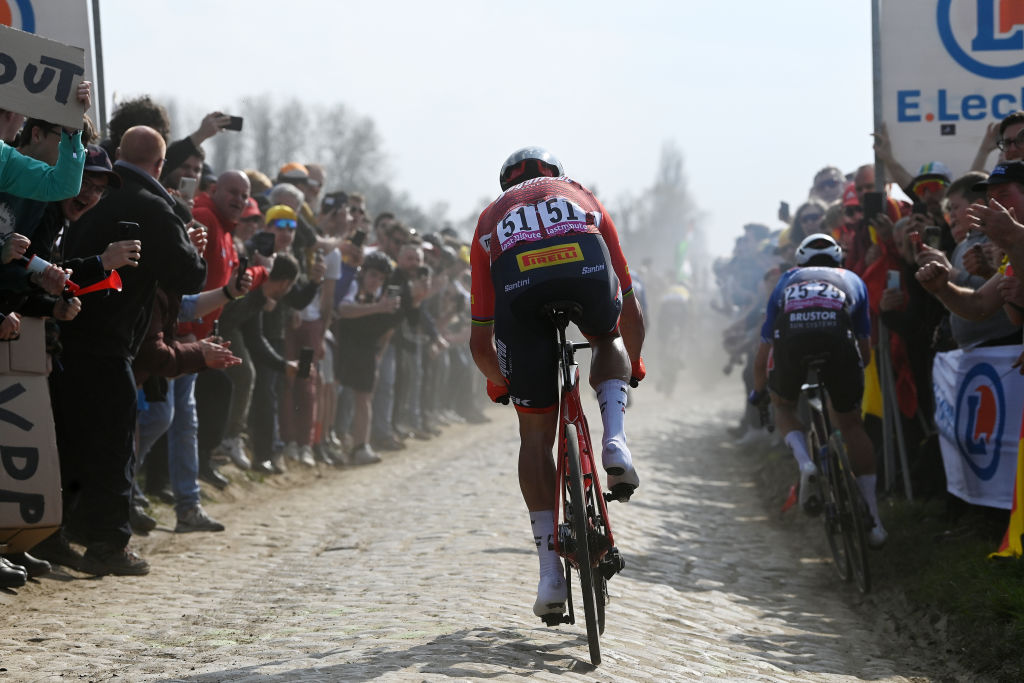
Tour de France organisers ASO have justified the absence of pavé in the 2025 Grand Départ stages despite the race’s opening three days finishing close to the much-feared cobbled backroads of northern France.
As the finishing locations of Paris-Roubaix and the Tour’s opening stage in Lille on July 5th are separated by just a few kilometres, expectations that sectors of pavé featured regularly in the Queen of the Classics could put in an appearance had been high.
But rather than a return to the cobbles of northern France, Thursday’s press conference revealed the opening three stages of the 2025 route will be completely avoiding any encounters with pavé.
Instead, stage 1 of the 2025 Tour de France looks set to favour the sprinters with a flat second half and a kilometre-long finishing straight, while stage 2 will have a punchy, hilly finale in Boulogne-sur-Mer and stage 3 could feature echelons on the exposed run-in to Dunkerque.
However, Tour de France route designer Thierry Gouvenou told L’Équipe that the reasons why there is virtually no pavé in the 2025 route at all - barring a brief segment of cobbles on Mont Cassel on stage 3, a long way from the finish - were two-fold.
Part of the reason was because of the geographical location of start and finish towns in the Hauts-de-France region, and partly that the pavé would have had to be included on stage 1, already one of the most fraught and crash-filled days of the entire race.
“Given the choice we made of [start and finish] towns, we’d have had to have them on stage 1” - starting and finishing in Lille - “because the pavé is all in the south of the region,” Gouvenou told L’Équipe. “We didn’t feel crazy enough to put the riders in the cobbles on day 1.
“So we abandoned that idea. They [the pavé sectors] will be back, but not in 2025.”
Gouvenou’s argument received support from local rider and cobbled Classics specialist Adrien Petit (Intermarché-Circus-Wanty), according to L’Équipe.
“It will be a tough opening weekend, the riders will be very nervous, and that’s why there’s no pavé,” he said. “It’s wise, we all know about how risky these opening stages are in any case.”

Apart from explaining the reasons why there was no pavé, Gouvenou also offered further details to the media about the challenges the riders will face in the ultra-hilly final 10 kilometres of stage 2, with three short but tough climbs in very quick succession and a hill-top finish at Boulogne-sur-Mer.
“It’s a long stage” - 209 kilometres - “and we deliberately included lots of changes of direction in the hope that crosswinds could have an effect,” Gouvenou said.
“Saint-Étienne-au-Mont (900 metres at 11%) which has 300-400 metres at 15% is as hard as the Pike on stage 1 of the 2023 Tour.
“Then there’s Outreau, similar to the Cap-Blanc-Nez climb where Wout Van Aert (Jumbo-Visma) attacked” - on stage 4 in the 2022 Tour and the final climb to Boulogne-sur-Mer.”
“All in all, it’s a much tougher stage than the one here in 2012”, when Peter Sagan (TotalEnergies) won at Boulogne-sur-Mer, Gouvenou told La Voix du Nord.
“The final climb is less hard than the Porte Gayole, the last climb which was tackled that year. But globally what comes before makes for a much more difficult stage.
“With the new way of racing we have these days, I’m sure we’ll have all the top names right at the front of the pack. Anybody who’s badly positioned at the foot of these climbs risks losing a stack of time.”







